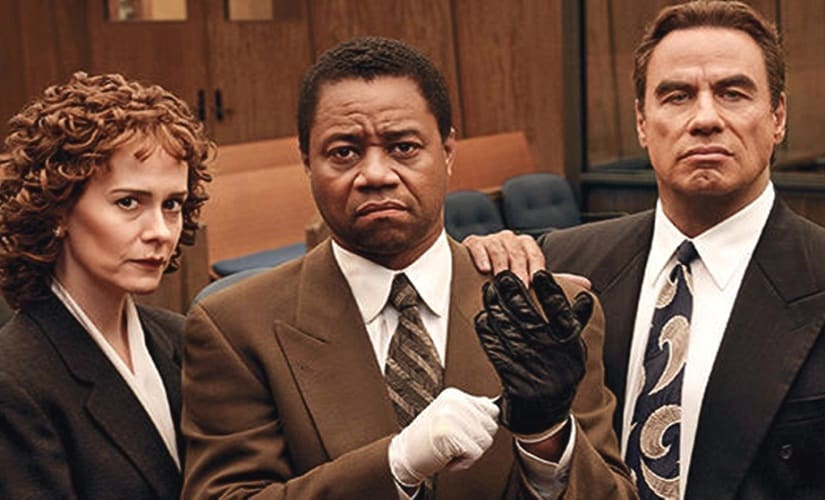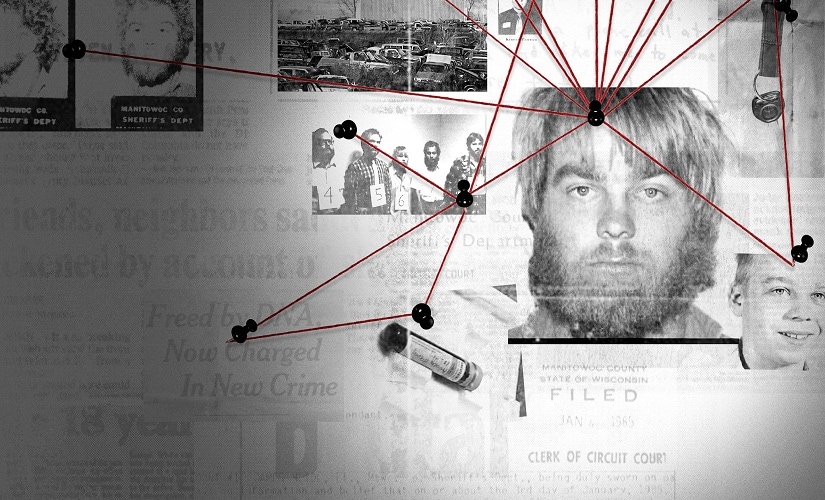“What the hell did I do? Killed them all, of course." It was a pivotal moment in television history when American real estate heir Robert Durst uttered these words at the end of HBO’s 2015 documentary miniseries The Jinx: The Life and Deaths of Robert Durst
. Unlike fictional crime dramas, at the end of which the culprit confesses, the episode wraps up and everyone goes home, The Jinx resulted in the very real-life arrest of Robert Durst
on first-degree murder charges
. Filmmaker Andrew Jarecki’s sit-down-interview-turned-exposé of Robert Durst was one in an exciting lineup of true crime shows that become sleeper hits in the past couple of years. For the casual viewer, it might seem like it all began with Serial
in 2014, a podcast co-created by Sarah Koenig and Julie Snyder, and hosted by Koenig. Using investigative journalism, Serial narrated a
non fictitious murder
every week in its first season. With a surge in popularity of the true crime genre, the subsequent rise in similar shows was unsurprising, from The Jinx to Netflix’s Making a Murderer
to the recently-concluded The People v. O.J. Simpson: American Crime Story
.
 Still from American crime Story: The People v OJ Simpson[/caption] All of these shows are extremely popular and critically acclaimed. Fan following for true crime shows often reaches almost fetishistic levels not usually associated with fictionalised crime shows — even popular ones like NCIS, Criminal Minds, Law & Order, Castle, How to Get Away with Murder etc. An interesting difference is the role social media plays in this. The
reddit threads discussing
Serial range from observant to downright creepily obsessive. In Steven Avery’s case, all the documents, transcripts, and exhibits from the trial
are available online
, for even the casual peruser. After The Jinx ended,
even celebrities took to Twitter
like crazed fans, aka all of us. With easily accessible and pervasive information that could be the difference between life and death, does it sound scarily like we — the viewers and listeners — are the judge and jury? Yes. Human sympathy aside, are we in any position to objectively evaluate the evidence we’ve been handed in such a throwaway manner? No. And yet, human nature will always triumph, and inherently, we’re inquisitive and judgmental more often than precautionary. [caption id=“attachment_2735566” align=“alignnone” width=“825”]
Still from American crime Story: The People v OJ Simpson[/caption] All of these shows are extremely popular and critically acclaimed. Fan following for true crime shows often reaches almost fetishistic levels not usually associated with fictionalised crime shows — even popular ones like NCIS, Criminal Minds, Law & Order, Castle, How to Get Away with Murder etc. An interesting difference is the role social media plays in this. The
reddit threads discussing
Serial range from observant to downright creepily obsessive. In Steven Avery’s case, all the documents, transcripts, and exhibits from the trial
are available online
, for even the casual peruser. After The Jinx ended,
even celebrities took to Twitter
like crazed fans, aka all of us. With easily accessible and pervasive information that could be the difference between life and death, does it sound scarily like we — the viewers and listeners — are the judge and jury? Yes. Human sympathy aside, are we in any position to objectively evaluate the evidence we’ve been handed in such a throwaway manner? No. And yet, human nature will always triumph, and inherently, we’re inquisitive and judgmental more often than precautionary. [caption id=“attachment_2735566” align=“alignnone” width=“825”]
 Netflix’s ‘Making A Murderer’[/caption] As viewers, it’s difficult to be objective. True crime shows consist of entire seasons following one story arc (as opposed to most fictional crime shows which deal with a new case every week) and the
option to binge watch
most shows makes it impossible to not relate (positively or negatively) to the protagonists. We’ve watched them for 10-12 hours, equivalent to a few years/decades’ worth of their lives. We know them. Intimately enough to form unshakable opinions about them. Now, armed with our knowledge and the confidence in our opinions, we discuss these fascinating people and the acts of violence they may have committed, with others who are also equally invested. Instead of the office water cooler the day after, we take to social media immediately: we tweet, we devour all the reddit posts, we obsess over them. In the meantime, some website is ready with
a list of 10 true crime shows
to watch next. Game on!
Netflix’s ‘Making A Murderer’[/caption] As viewers, it’s difficult to be objective. True crime shows consist of entire seasons following one story arc (as opposed to most fictional crime shows which deal with a new case every week) and the
option to binge watch
most shows makes it impossible to not relate (positively or negatively) to the protagonists. We’ve watched them for 10-12 hours, equivalent to a few years/decades’ worth of their lives. We know them. Intimately enough to form unshakable opinions about them. Now, armed with our knowledge and the confidence in our opinions, we discuss these fascinating people and the acts of violence they may have committed, with others who are also equally invested. Instead of the office water cooler the day after, we take to social media immediately: we tweet, we devour all the reddit posts, we obsess over them. In the meantime, some website is ready with
a list of 10 true crime shows
to watch next. Game on!
True crime and punishment: How pop culture taps into our fascination for real-life cases
Sneha Khale
• April 24, 2016, 14:58:14 IST
Our obsession with stories of true crime has been around for centuries. What’s changed over the last few years, is our perception of it as a ‘popular genre’
Advertisement
)
But was Serial really the start? Koenig herself doesn’t believe that.
In an October 2014 interview
, she agreed that “this is not an original idea. Maybe in podcast form it is, and trying to do it as a documentary story is really, really hard. But trying to do it as a serial, this is as old as Dickens”. Not primarily known as a crime writer, Dickens nevertheless did model many of his fictional characters
on real-life law enforcement figures
. While the debate on whether Edgar Allen Poe or Truman Capote
was the pioneer of the true crime genre
is the stuff of many lit-class arguments, there has been plenty of
great literature
inspired by true crime and the question “
why we’re so obsessed by murder
?” has been addressed before. Even in India, the movie Talvar, which released in 2015 and is based on the Arushi Talwar murder case from 2008, is proof of our fascination with the macabre (a
podcast on the same
is also on the cards). Clearly, our obsession with stories of true crime and police procedurals has been around for centuries. Even the Bible is full of them. What’s changed over the last few years, is our perception of true crime as a popular genre. No longer is true crime considered “sensational” (like it was in the 20th century) and there’s no longer a need to apply a “respectable science” like forensics to a “dirty” crime. Some writers argue that “our interest derives from the perverse knowledge that we can empathise not only with the victims but also, at some darker depth, the culprits”. Could that be why Serial
set hundreds of online sleuths
on to the case of Hae Min Lee’s murder 17 years ago and brought out a potential alibi witness? Could this empathy with the “culprit” be the reason for a change.org
petition to free Steven Avery, the convicted murderer who was the focus of Making a Murderer? Under widespread attention, Avery’s case
has been reopened
, years after he was convicted. In the case of Robert Durst, the filmmakers, who found a
crucial piece of misspelled evidence
to implicate him, felt sufficiently “bad” about turning on their star, someone they’d started to like and bond with. [caption id=“attachment_2735560” align=“alignnone” width=“825”]
End of Article